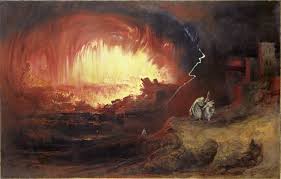Another Harry Potter film, another flurry of smug people complaining about adults reading children’s books. I am grateful to the anonymous poster on the Guardian website who provided this great quote from C S Lewis:
"Critics who treat adult as a term of approval, instead of as a merely descriptive term, cannot be adult themselves. To be concerned about being grown up, to admire the grown up because it is grown up, to blush at the suspicion of being childish; these things are the marks of childhood and adolescence. And in childhood and adolescence they are, in moderation, healthy symptoms. Young things ought to want to grow. But to carry on into middle life or even into early manhood this concern about being adult is a mark of really arrested development. When I was ten, I read fairy tales in secret and would have been ashamed if I had been found doing so. Now that I am fifty I read them openly. When I became a man I put away childish things, including the fear of childishness and the desire to be very grown up."
As it happens, I’m not a massive fan of Lewis. Enjoyed The Lion, The Witch & the Wardrobe as a child but could never really get into the rest of the Narnia books. I preferred the Moomins as it happened. I still read children’s books as well as these new YA (Young Adult) novels that we never had when I was a teenager and which seem to be the sole refuge of serious political satire in fiction at the moment.
As I understand it, children’s literature was invented by, of all people, 17th Century puritans, especially one James Janeway who published in 1671 a book that is a touch startling to our sensibilities as its title reveals:
A Token for Children, being an Exact Account of the Conversion, Holy and Exemplary Lives, and Joyful Deaths of Several Young Children
It gets worse. In the preface Janeway exhorts his now presumably already nervous young readers thus:
‘If you love your parents, if you love your souls, if you would escape hellfire, and if you would go to Heaven when you die, do you go and do as these good children.’
The book remained in print right up to the 19th century.
Mind you, the paedocidal Janeway has to bow to Abraham Chear who in his 1670 book, A Looking-Glass for Children writes this verse in the voice of a young girl looking in a mirror:
What a pity such a pretty maid
As I should go to Hell!
Meanwhile, over in colonial
The Cat doth play
And after slay.
And
Xerxes the Great did die,
And so must you and I.
It does rather put Enid Blyton into context.






